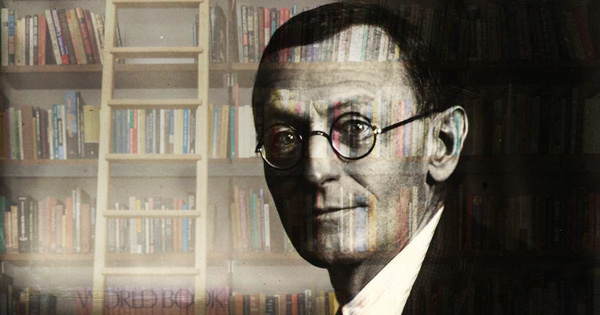
Hermann Hesse on Reading and the Heart of Wisdom – The Marginalian
[ad_1]
Books show us what it is like to be another and at the same time return us to ourselves. We read to learn how to live — how to love and how to suffer, how to grieve and how to be glad. We read to clarify ourselves and to anneal our values. We read for the assurance that others have lived through what we are living through. “You think your pain and your heartbreak are unprecedented in the history of the world, but then you read,” James Baldwin reflected in his most personal interview.
And yet while books may give us a foothold for the disorientation of being and an antidote to our existential loneliness, the paradox of living is that no example, no parallel, no borrowed wisdom is a substitute for life itself. The story of our own lives is only ever written on the blank page of living, our store of wisdom only ever found in the deepening truth of our own experience.
In 1918 — more than a decade before he penned his magnificent essay on the timeless magic of books and three decades before he was awarded the Nobel Prize in Literature — Hermann Hesse (July 2, 1877–August 9, 1962), entering his forties, captured this paradox in a short poem of great simplicity and loveliness, found in the posthumous collection The Seasons of the Soul: The Poetic Guidance and Spiritual Wisdom of Herman Hesse (public library).
BOOKS
by Hermann HesseAll the books of the world
will not bring you happiness,
but build a secret path
toward your heart.What you need is in you:
the sun, the stars, the moon,
the illumination you were seeking
shines up from within you.The quest for wisdom
made you comb the libraries.
Now every page speaks the truth
that flashes forth from you.
The young Proust had arrived at the same conclusion in his reflections on why we read, observing that “the end of a book’s wisdom appears to us as merely the start of our own” because “the essential book, the one true book… already exists in every one of us.”
Complement with Pythagoras on the purpose of life and the meaning of wisdom, Nick Cave on the importance of trusting yourself, and Rebecca Solnit on how books solace, empower, and transform us, then revisit Hesse on the courage to be yourself, the wisdom of the inner voice, and how to be more alive.
[ad_2]
Source link




